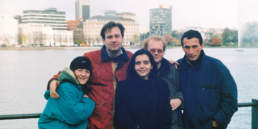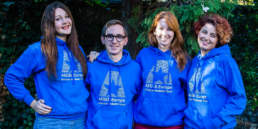Christmas time is when many locals think about the next summer – because they start planning their next Summer Universities. For this, they can count on the support of the new Summer University Coordination Team. Marijana Asprovska, Anastasiia Sheremet, Christian Seuling and Akshat Jangam are full of ideas, for example when it comes to better PR material. But that’s not all: “One of our main goals is enhancing the overall quality of SUs”, says the new SUCT. “We definitely strive for making SUs more contentful.”
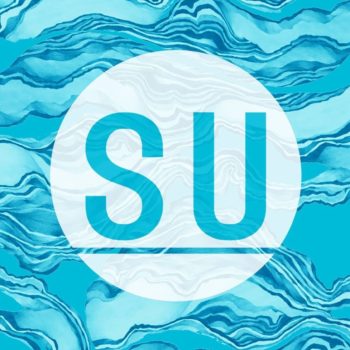 Golden Times: You have many news about Summer Universities in 2019? What should the AEGEE members look forward to?
Golden Times: You have many news about Summer Universities in 2019? What should the AEGEE members look forward to?
SUCT: We have a lot of news coming, so turn notifications on not to miss any of them. Our fantastic four is brainstorming every free second to generate awesome ideas for next summer season. Most of them will be pleasant surprises for the network while we will spill the bean about some. This season we will have lots of different PR materials that would contribute greatly to the recruitment and engagement, thus, hopefully, more applications for SUs, also we will give locals the opportunity to choose whether to promote offline or online. But that’s not all.
GT: Can you tell more?
SUCT: Sure! The Short Summer Course (SSC) isn’t an SU pilot anymore, but already a fully implemented format that along with the other formats (SC, SC+, TSU) will be loaded at full capacity starting this summer. SUCT trips will be altered in order to prevent possible complications with organization and not only cure the problem when it has already happened. We will try to fit the needs of organizing locals by keeping constant track on the preparation and use a first aid kit if necessary by visiting and helping before the start of SUs. The evaluation algorithm will be slightly changed meaning that the word of participants will have more weight and the SUCT evaluation afterwards won’t be a secret anymore. As you can see, the plans are huge, time is limited, therefore working hard to live up to expectations of AEGEEans.
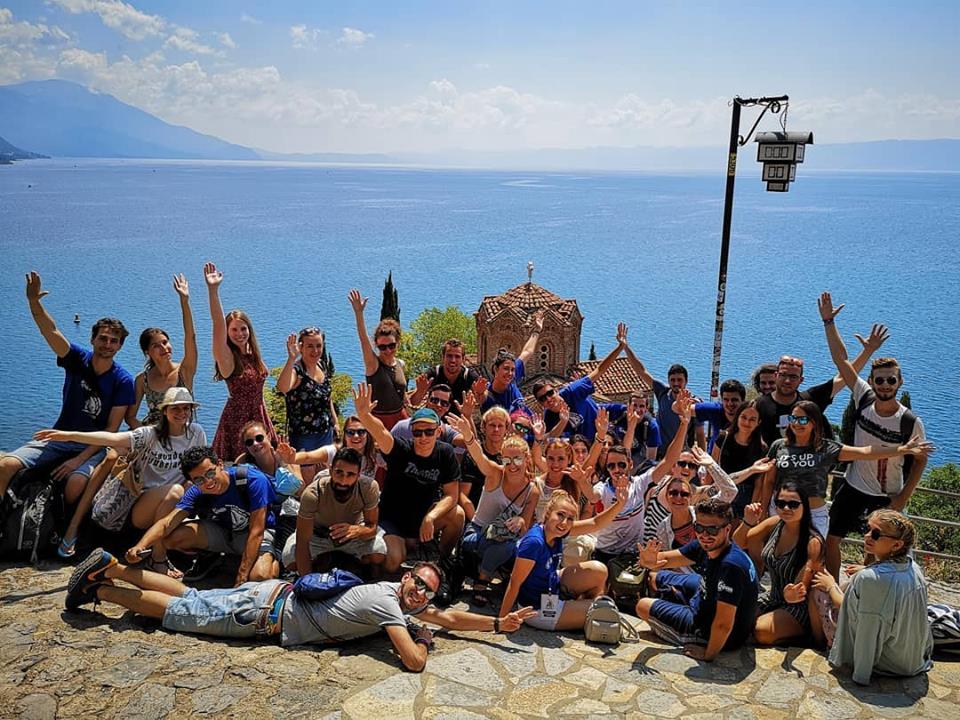
GT: What’s your strategy to raise the total number of Summer Universities and the number of SU applicants in 2019?
SUCT: One of our main goals is enhancing the overall quality of SUs. And by doing so we hope to see numbers rising and project thriving. Our new PR approach focuses on storytelling, which will attract not only AEGEE members but externals as well, more materials for locals to promote and gain visibility, cooperation with European Bodies that will add more interest in participating in the SU and an altered application process that will also help small locals to stand out and never cancel their plans again, just to mention a part of our strategy.
GT: Many SUs use generic topic categories like “Sport”, “History and Culture”. What’s your strategy to diversify the topics?
SUCT: We will definitely have a look on that when checking the programmes. We will then see whether activities would fit the topic and also would come up with feedback for the organizers where there could be more programme or activities added.
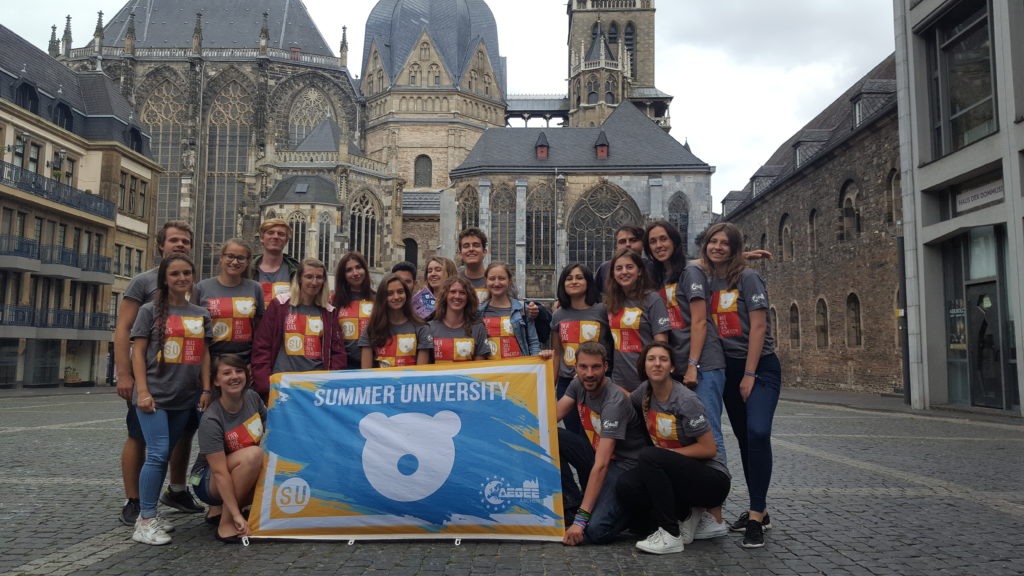
GT: Previous SUCTs already tried to improve the content quality of the SUs. How can you make sure that the antennae deliver the promised hours of content?
SUCT: We definitely strive for making SUs more contentful so locals use better and more interesting content in their SU. Although it is difficult to ensure the same level of quality between the SUs, we are trying to shrink the difference this year by strongly encouraging the organizers of all the types of SU to cooperate with European Bodies. This means that in 2019 TSUs, SCs, SC+s and SSCs will be also able to establish an official cooperation and receive thematic and higher quality of content. We already published the Booklet “Cooperation with European Bodies” in which all information can be found.
GT: Will it also be easier to get a trainer for an SU?
SUCT: We have increased the budget for trainer reimbursement which we expect to be an additional factor to increase the number of cooperations between local organizers and European Bodies. As promised in her programme, Marijana as content manager and trainer from the Academy is planning Skype meetings with the content managers of the SUs which will be a way of online training. The goal is to train the content managers to deliver the planned workshops in a more dynamic and interactive way, which will result in a higher impact on the participants. On top of this, this year we are changing the database of compulsory sessions.
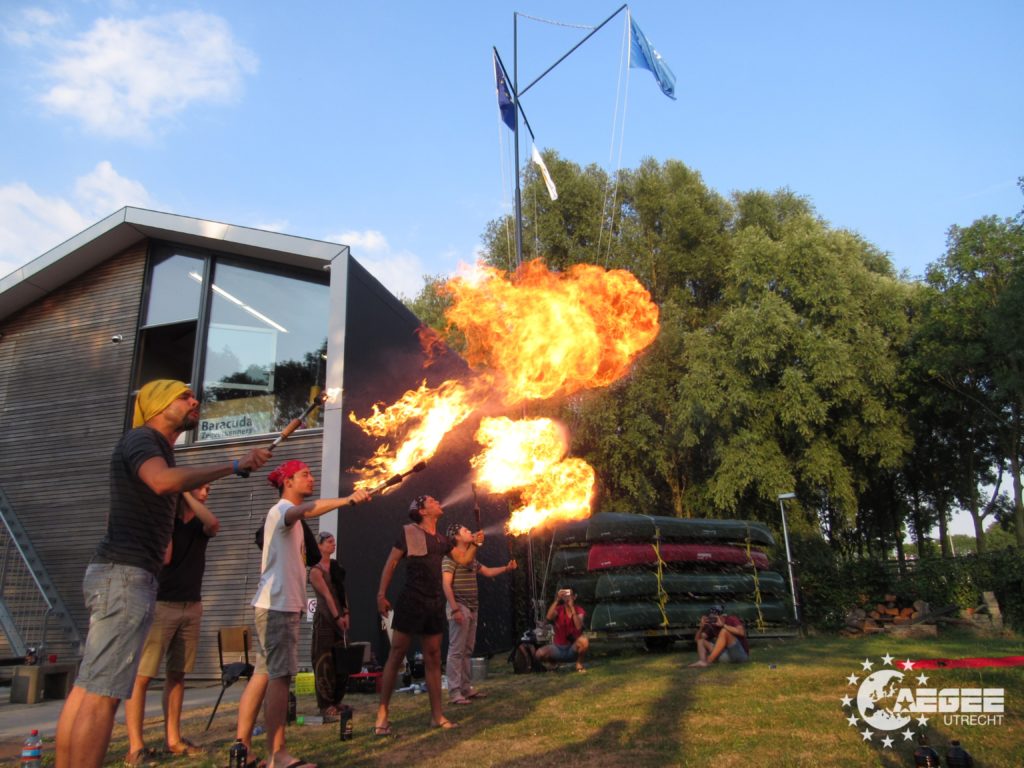
GT: How so?
SUCT: Apart from the focus areas, we are introducing several more general topics which Interest Groups and projects in AEGEE are working on. This will show new members who attend an SU the scope that AEGEE offers. This brings higher flexibility to the local organizers for the topics they can choose from and will hopefully mean a higher quality of the content delivered. Finally, with the planned detailed checking of programme, we will try to ensure that all SUs run undisturbed.
GT: Which role do you see for language courses, which hardy take place these days? Do they have a future?
SUCT: Language courses are the origin of the Summer University Project in 1988. This origin was especially in the 30 years of SUmmer University Project highlighted and it could be seen that the need by participants for language courses is also in its fourth decade still present. We would therefore definitely encourage locals whose language is widely spoken in the network to take academic content with language courses into consideration, which would be in line with our goals to realize higher average quality content. It is hard to predict the future of language courses, but basically academic content is good and high quality content, and this needs to be exactly the future of the SU project. However, we are already working on it and hope to have next year more than only one language course.
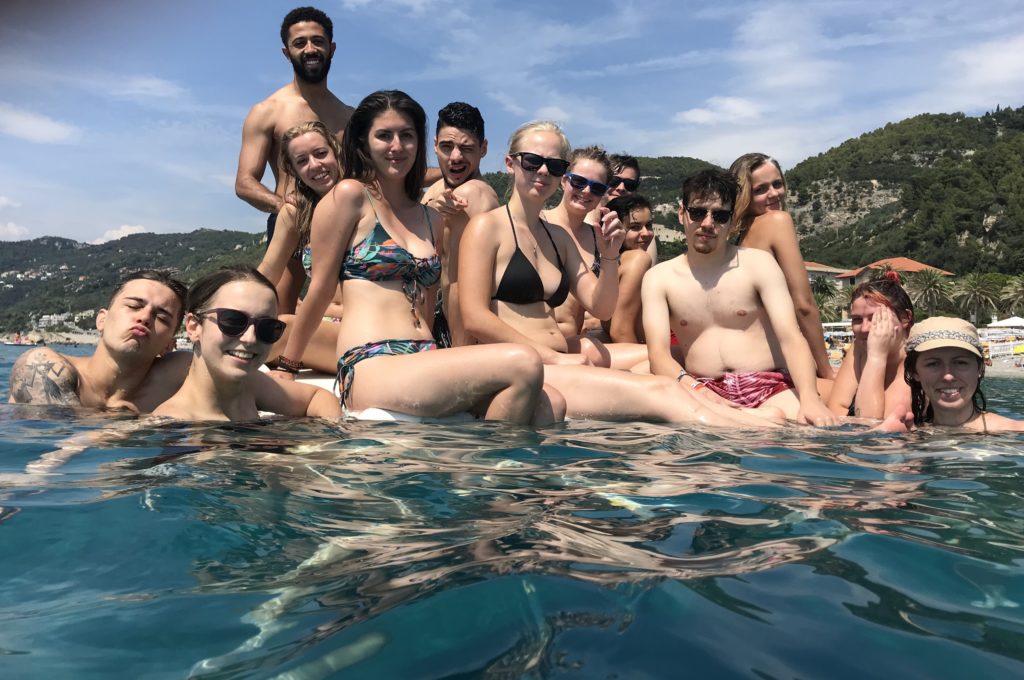
GT: The Summer Break, which was experimental in 2018, will officially be part of the SU project – under a new name. What was the experience with the Summer Breaks in 2018?
SUCT: The pilot of the Summer Break, which was introduced in the year of its 30th anniversary, was indeed officially implemented as part of the SU project in Agora Istanbul as Short Summer Course (SSC). What we could see in the evaluations and hear from the previous SUCT, is that the feedback by organizers and participants was really positive. It offers the possibility for smaller locals that are missing resources to still take part in the SU project but also for members that cannot afford to take more weeks in a row off can still apply for SSCs. We are looking forward to the role this new format will have in the SU project.
GT: When will the antennae receive the PR material?
SUCT: Everybody will be able to choose from the new diversified materials through different means of distribution. Locals will receive them right in the time when they need to start promotion. We don’t want to give too much information at this point, but all locals and members can be definitely excited about this.
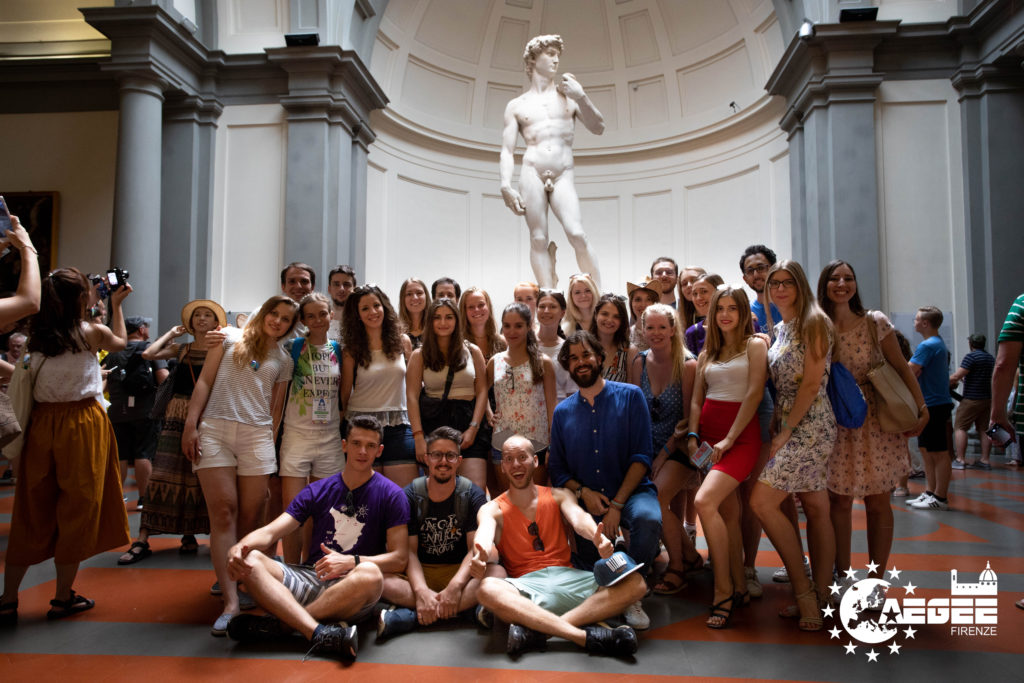
GT: Will you change the SU website – and yes in what way?
SUCT: Given the new data privacy EU regulations, we will change the user authentication and authorization through the new OMS system instead of the former Intranet one based on LDAP. The website was undergoing backend changes in the previous term, which we will hope to conclude in this term. Frontend improvements will commence as the backend finalizes to reduce errors and unnecessary redundancies. As for how the website looks and feels, we will try to keep it consistent with the previous years and avoid confusing people unnecessary.
GT: The success of the SU project depends also on the local promotion. Often antennae promote the courses as holidays, despite the fact that students have more opportunities than ever to travel cheaply. How can the locals improve the promotion of SUs?
SUCT: Indeed, locals lack the capabilities to inform their members properly about the identity of the Summer University Project. Especially Outgoing Responsibles are the ones in charge of informing especially new members about the SU project. The role of Outgoing Responsible is highly underestimated. As also Christian promised in his programme and candidature, we will focus on preparing them in a right and accurate way by offering Skype meetings with them – which are highly recommended to attend – and create other materials that they can follow. But it is not only the Outgoing Responsible; the whole local is responsible to show that a Summer University is not only a holiday but focuses about more like for example self-development, contentful programme and education.
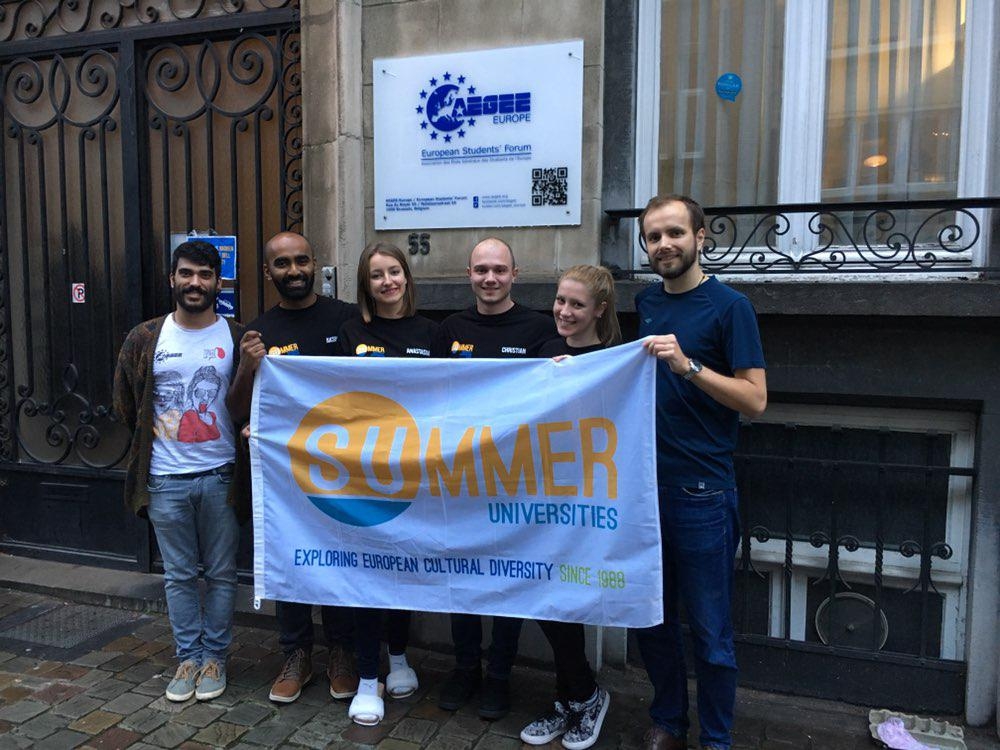
GT: For your team the hard work is starting now. How is the cooperation in your team, how do you like the tasks in the SUCT?
SUCT: In fact the hard work has already begun. We finished our live meeting in the CD house recently. Exhausted after working more than 12 hours per day during the meeting, but still with a smile on our faces, we absolutely love preparing the network for the biggest project of AEGEE! And the cooperation in the team? We couldn’t wish for better cohesion among us. We often joke that we already feel like a family sharing all the joy, stress, work and fun, it feels like we have known each other for years and not just a couple of months.

